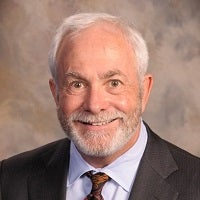Meet Andrey Ostrovsky, MD, FAAP & Lisa Palko, PharmD
The ADHD Landscape with Andrey Ostrovsky MD FAAP & Lisa Palko PharmD
About the Hosts

Fred Goldstein is the founder and president of Accountable Health, LLC, a healthcare consulting firm focused on population health, health system redesign, new technologies and analytics. He has over 30 years of experience in population health, disease management, HMO, and hospital operations. Fred is an Instructor at the John D. Bower School of Population Health at the University of Mississippi Medical Center and the editorial Board of the journal Population Health Management.

Gregg is a seasoned senior healthcare executive, having provided leadership and consulting support for hospitals, health systems, capitated medical groups, IPAs, PHOs, MSOs, and several hospital/physician managed care joint ventures. He is Founder & Managing Director at Health Innovation Media, the publisher of ACOwatch.com, and is consistently recognized by his peers as a thought leader in healthcare social media via @GreggMastersMPH.




